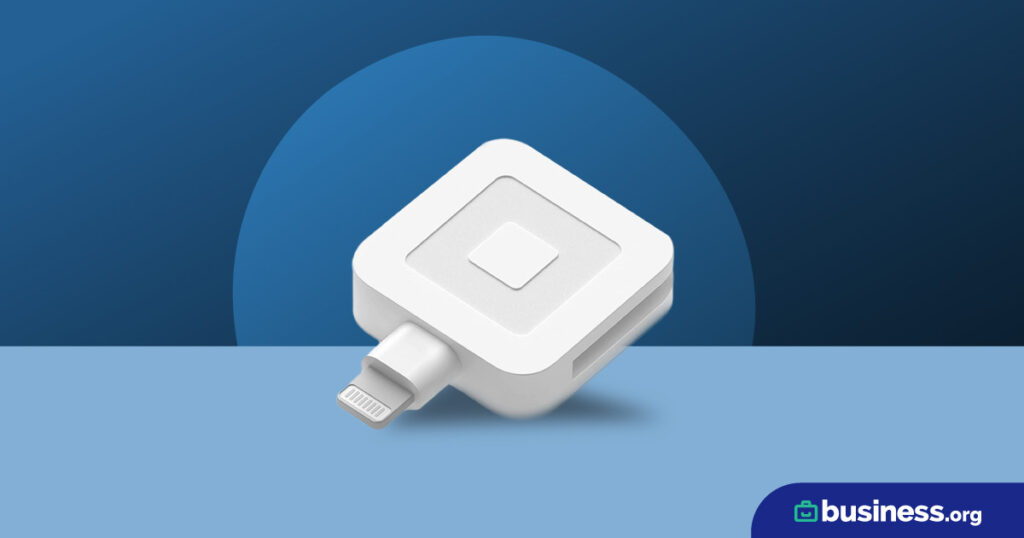We are committed to sharing unbiased reviews. Some of the links on our site are from our partners who compensate us. Read our editorial guidelines and advertising disclosure.
What Are the Average Credit Card Processing Fees?
The average credit card processing fee assessed for any kind of transaction is around 2% or 3% of the total transaction cost. That said, there are a number of factors that influence how much your business will pay in processing costs per transaction.
Because of this, it can be tricky to know when you’re getting a good deal on processing fees or when you’re paying too much. We’re here to help demystify processing fees so you can more easily choose the processing fee pricing system that works best for you.
How are credit card processing fees calculated?
Processing fees are calculated by your processing provider. The overall price of these fees is largely determined by current interchange rates.
Interchange rates are the fees required by card-issuing banks like Visa and Mastercard. Your business won’t work with credit card companies directly, but your processor will. The card-issuing banks charge an interchange fee for every transaction that uses one of their cards.
Your processor is responsible for paying these interchange fees. When your processor deposits the money made from credit card processing into your bank account, it’ll deduct the cost of interchange fees and take a small cut for its services.
How processing companies determine their cut
Processing companies provide secure PCI-compliant transactions for small businesses and handle transactions to all major credit card providers—which includes factoring in hundreds of interchange rates. So once interchange fees are factored into the overall rate, the processing company will also take enough of a cut to covers costs for its own services.
And providers may provide additional services that drive up the price of their processing costs:
- Point-of-sale features
- Rewards programs
- Chargeback protection
- Online payment processing
- Mobile processing
- Inventory management
Each of the processor’s services can affect its overall processing price. But there are unique ways each processing company may charge you for their services.
By signing up I agree to the Terms of Use and Privacy Policy.
Common credit card processing pricing structures
The simplest pricing structure is flat-rate pricing. In this pricing structure, a flat rate is charged for every transaction. That rate will often include a percentage of the transaction cost and a flat fee—2.5% + 30¢ per transaction, for example.
The next most common pricing structure is interchange-plus pricing. There are a multitude of different interchange fees based on the card used, what is being purchased, and a number of other factors. In this pricing system, those interchange fees are passed on to you directly in addition to a small cut added by your processing company—interchange + 0.5% + 15¢ per transaction, for example.
Some companies will also charge a monthly fee on top of their processing rates. Usually, processing companies with really low rates charge an additional monthly fee. But one thing to look out for with monthly fees is long contracts. If you’ve found a great processing company, a long contract may not be a problem. But you wouldn’t want to get stuck in a three-year contract with a processing provider you don’t like.
Which credit card processing is cheapest for small businesses?
Your cheapest option will largely depend on your specific processing needs. There are a few common factors that affect processing needs the most:
- How you process—swiped, keyed, or online
- Average transaction size
- Frequency or infrequency of processing
- Overall risk level
- Point-of-sale needs
- Industry
If you process infrequently, for example, you may not want to sign on with a processing company that charges a monthly fee because you’ll be paying that fee even for months you don’t need the service. Companies like Square and Stripe offer pay-as-you-go flat-rate pricing, so you only pay fees when you accept transactions.
If you process a decent volume of sales on a regular basis, however, a processing company with really low rates and a reasonable monthly fee may save you quite a chunk of change.
In the end, it really comes down to understanding what your business needs from a processing provider and finding a provider that offers a high-quality service at a reasonable price.
Can you negotiate credit card processing fees?
Many processing companies offer negotiable rates. These rates are usually only available to businesses that have a high processing volume.
Some credit card processing providers like First Data and BluePay don’t even print their rates online because they offer custom rates to every new client they take on.
However, it may be worth talking to your provider about negotiating rates if you find a better deal elsewhere because they may be willing to lower your rates to keep you as a customer.
The takeaway
The average processing fee is around 2% or 3%, but there are a lot of factors that go into deciding if a processing provider is right for you. And low processing fees don’t always mean you’ll have access to the features and functionalities you need to process credit cards for your unique small business.
That’s why it’s crucial to understand what you’re looking for in a processing company if you plan to hunt down the best price. In the end, your chosen company should have both competitive rates and the right suite of features to fulfill your processing needs. Only then will you truly have reached processing zen.
If you’re looking for an easy place to compare rates and features, be sure to check out our picks for the top processing companies of 2020.
Disclaimer
At Business.org, our research is meant to offer general product and service recommendations. We don't guarantee that our suggestions will work best for each individual or business, so consider your unique needs when choosing products and services.



